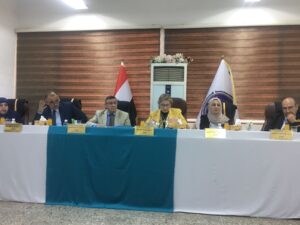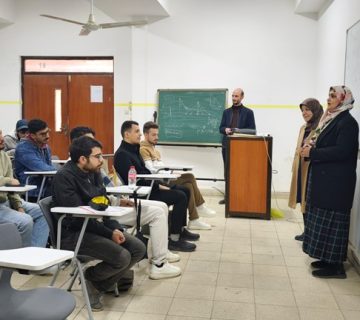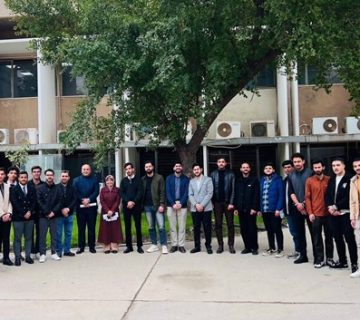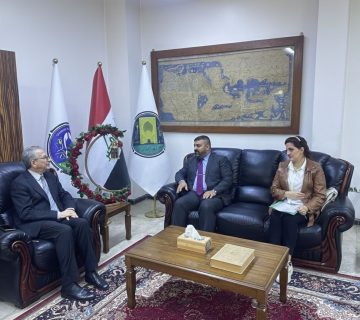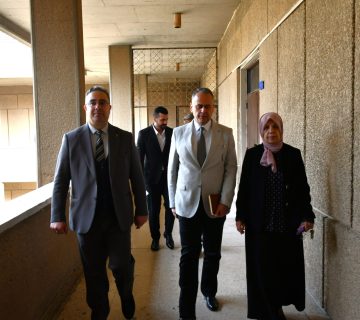Environmental Engineering Department at the College of Engineering, University of Baghdad, held PhD dissertation examination on Wednesday 3\5\2023 titled:
“Impact of Leachates Recirculation on the Stabilization of Fresh, Aged, and Fermentable Municipal Solid Wastes in Simulated Anaerobic Bioreactors”
By the student Omar Amer Hussien and supervised by Assit. Prof. Dr Jathwa Abdul Kareem Ibrahim. The examination committee consisted of Prof. Dr. Zainab Ziad Ismail as Chairman, and the membership of Prof. Dr. Abeer Ibrahim Mosa, Prof. Dr. Faris Hamoodi Mohammed, and Prof. Dr. Mohaned Jasim Mohammed Ridha, and Assist. Prof. Dr. Hayder Mohammed Abdulhameed. After conducting the public discussion and listening to the student’s defense, the dissertation was accepted. It was summarized as follows:
In recent years, there is significant increase in the amounts of municipal solid waste around the world. Therefore, the need to establish advanced sanitary landfills and work to develop their design and efficiency increased. Despite several advantages, the creation of significantly contaminated leachate with significant changes in chemical composition and flow rate is a significant disadvantage. Landfill leachate is a severe issue in the landfill-based treatment of municipal solid waste. This leachate is typically highly contaminated, yet it receives less attention in terms of treatment. Today’s task is to optimize leachates treatment in order to entirely reduce detrimental environmental impacts. Leachates recirculation is frequently used during landfill operations to assist stabilize landfill degradation. Thus determining the impacts of leachates recirculation on the degradation of three different compositions of municipal solid wastes using anaerobic bioreactors were studied. The three types of composition of wastes included: simulated fresh wastes of common composition, simulated fresh wastes of fermentable composition and actual aged wastes extracted from a site in Baghdad, Iraq. Measurements of certain parameters including pH, leachate conductivity, total dissolved solids, wastes settlement, chemical oxygen demand (COD), and gases generation were carried out. The study reached to the conclusion that quantity of oxidized organic matters was increased by the leachates recirculation, and the period of the degradation was reduced in by using leachate recirculation technique. After 360, 150, and 510 days of experiment, wastes stabilization seemed to be reached and chemical oxygen demand decreased to 4000,1200, and 7000 mg COD/L for fresh and aged and fermentable compositions of the re-circulated columns, respectively. CH4 and CO2 gases generated from anaerobic columns were detected and the highest percentage CH4 record was 54% evolved from reactor C2. The waste settlements increased by leachate recirculation up to 8.3, 1.7 and 20% for fresh, aged, and fermentable waste, respectively.
